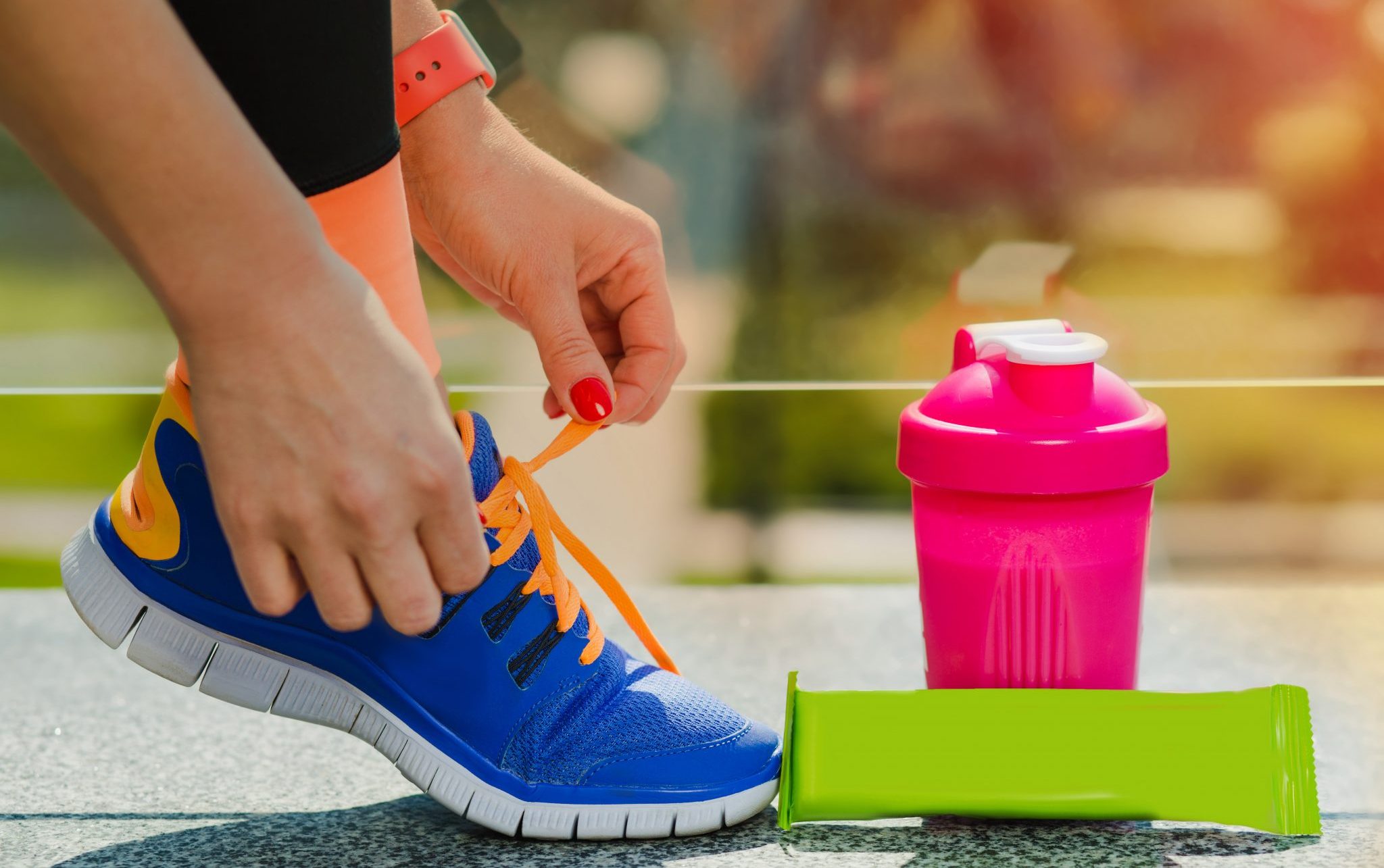You’ve heard the rumors? But could they be true, is running on an empty stomach in the morning ever a good idea or is it just another weight-loss myth?
While some of us are groggy even getting out of bed, here you are pondering whether or not you should run before or after breakfast. Good for you!
But, let’s be clear when we talk about going for a run before breakfast, what we are actually talking about is fasted cardio. So, what’s that?
Fasted cardio is any exercise done once your body is done processing food, meaning your insulin levels are lowered. If the body’s still processing, that’s fed cardio.
Digestion 101

Time for a quick biology lesson in how your body processes food:
1. Once you’ve taken a bite and food moves into your stomach, it is broken down by enzymes, hydrochloric acid, and stomach mucus to be used to power your body.
2. It then passes through your system to your small intestine where it is further broken down, waste products are removed, and essential nutrients, including glucose (or glycogen), are absorbed by the bloodstream.
3. Once the glucose hits your bloodstream, it is met by insulin that transports it to your cells, giving them a boost of energy. This is also why your insulin levels rise after you eat.
The debate
So, now we know the basics of what’s going on inside you, let’s grab a cup of tea (or coffee) and dive into the arguments for and against running before eating.
3 arguments against
- Running on empty
Food is fuel, so running before eating doesn’t exactly sound like a smart plan, kind of like driving your car on empty. But is biology really as simple as an engine?
Not entirely, but running on an empty stomach isn’t without its problems. If you’re not used to it, missing breakfast can lead to fainting or lightheadedness, so be extra careful – take a running buddy and don’t over exert yourself.

- Burning muscle
Theoretically speaking, when you don’t eat, and then exercise you are kind of working in the calorie minuses. Usually, during fed cardio, the body draws its fuel from the glucose and carbohydrates in your system, without food, it draws its energy from your muscles, creating a breakdown. Which may not be desirable if you’re trying to build tone.
- No weight-loss benefits
Does running on an empty stomach burn more fat? This one is constantly under debate. Many argue that going without food causes the body to retain fat to feed itself later, others suggest that a little fasting is good, and both are right to a certain degree.
The truth lies of somewhere in between, weight-loss occurs when we have a calorie deficit, which can be achieved through fasting. What’s more important here is to take into account the additional processes and effects of short-term fasting on the body, and draw your own conclusions, about whether it will work for you.
3 arguments for
- Increased endurance
Going without is indeed a test of endurance and strength. It’s tough in the beginning, but experts say that through training – building your pace – overall levels of endurance are increased.
For casual athletes, the results may not be so great, but for athletic competitors, seeking to get a (legal) edge on the competition, it can be a particular plus.

- Pushing through that plateau
One of the key benefits of running on an empty stomach is being able to push through a weight-loss plateau. I know, I know, we just said this is a tricky area, and weight loss just isn’t that simple.
However, this may be an exception. If you’re stuck on those last few pounds, then high-intensity activities, such as running, can give a boost your weight loss.
- Self-discipline
Nothing worth having is ever easy. When you first started running, the challenge was getting out of bed early enough to go for a run before work. Now that you’ve accomplished that, you’re considering running on an empty stomach.
Doing so is nothing if not a trail of discipline and self-dedication. So, if you’re able to draw from that inner-strength, it may help you address bigger challenges in your life, and not just running.
70% water, 100% determination

If you’re still weighing up the question: “should I eat before my morning run?” We can’t give you a definite yes or no answer, that’s something you need to decide by yourself, but one thing is for sure – you’ll need to stay hydrated.
While it’s not exactly correct to say your body is 70% water – in fact, it varies from 45% to 78% (newborn) – you do need to drink water to live and keep all those healthy processes flowing.
You’ll need to maintain a healthy fluid balance – too much water can be bad for you too.
Sources vary on the exact amount of water you should ingest, some say between 8-10 glasses a day (70-90 fluid ounces) others suggest calculating on a body weight times x 0.5 (or 1.0) formula to give how much you should be drinking in fluid ounces.
In any case, stay hydrated, stay determined, stay strong.






































